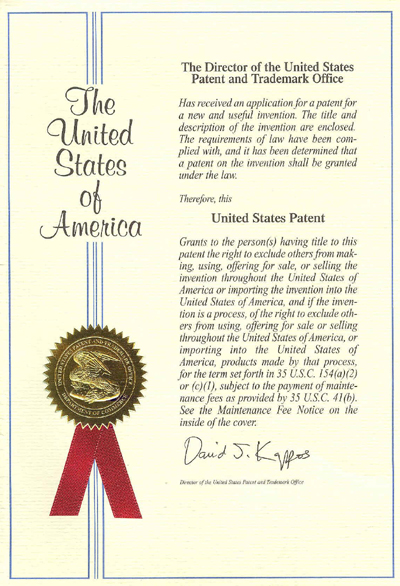In recent years, the Molecular Catalysis and Technology Research Group of the State Key Laboratory for Oxo Synthesis and Selective Oxidation, LICP, CAS, has carried out the research on the catalytic conversion of bio-based polyols to many basic block chemicals. Researchers in this group have applied several national and international invention patents concerning the method for the production of 1,2-propylene glycol from hydrogenating of glycerol, and recently one patent was granted by the United States Patent and Trademark Office.
On the basis of research on the technology for value-added utilization of bio-based polyols, the Research Group has successfully catalyzed glycerol, which is a main byproduct of biodiesel production, into high value-added 1,2-propylene glycol by using the new non-noble metal nano copper-based catalytic materials. The application of this technology not only develops a method for the low-cost production of 1,2-propylene glycol, which provides a low cost, environmental-friendly and non-petrochemical route for the synthesis of important polyester monomer 1,2-propylene glycol, but also greatly reduces the production cost of biodiesel, and increases the economic benefit of biodiesel. This Research Group has placed equal emphasis on both applied and fundamental research, and the related fundamental research work has been published on the world renowned journals, such as Chem. Mater. (2008, 20, 5090-5099) and Appl. Catal. A (2009, 366, 288-298). Currently, the new technology has entered into the stage of 10,000 ton-class industrial demonstration. The cooperation with famous enterprises home and abroad will be carried out to enhance the industrial application.
1,2-Propylene glycol is an important chemical widely used in unsaturated polyesters, food, medicine, cosmetics, washing products, plasticizers, anti-freezes, and so forth. It is currently produced by the method of hydrating of propylene oxide, which not only strongly depends on the petrochemical based propylene resources, but also faces the increasing production costs. Therefore, it is urgent to develop new sources of raw materials and synthesis routes for the production of this product.
Glycerol is also called 1,2,3-propanetriol, its selective hydrogenation reaction is shown as follow:




